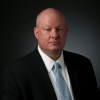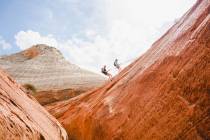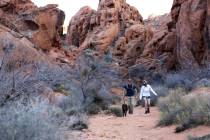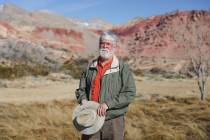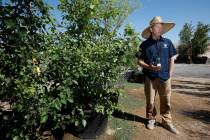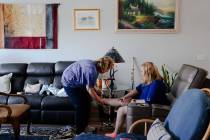Harry Reid’s people: Former staffers carry senator’s legacy far and wide
They are business executives and consultants, politicos, lobbyists and nonprofit officers. They are men and women, racially diverse and, to a person, politically astute. And they all share a single experience in common: They worked for the late Nevada Sen. Harry Reid.
Among Reid’s less emphasized qualities was his ability to spot talent, to recruit, train and advance a cadre of people, teaching them along the way the intricacies of politics in the U.S. Senate and Nevada, and graduating them to high-profile jobs across the country.
The Reid Diaspora still has reunions from time to time. Each credits working for Reid with skills they have used later with great success, as if working for Reid was akin to attending an exclusive — and difficult — university.
As these profiles demonstrate, Reid’s legacy won’t just be about protecting public lands, stopping Yucca Mountain or beginning the slow dismantling of the Senate filibuster. It will also be seeding organizations with people he trained. That’s a legacy that will long outlive the senator.
Megan Jones
Tenure with Reid: Jones started as a college intern in 1996, then worked in the senator’s Washington office from 1997-1999, including time spent working on his brutally close 1998 re-election campaign against then-Congressman John Ensign. After that, Jones served as a political adviser to Reid until his retirement in 2016, including work on his 2004 and 2010 re-elections, his reform of the state Democratic Party and his initiatives to preserve public lands in the state.
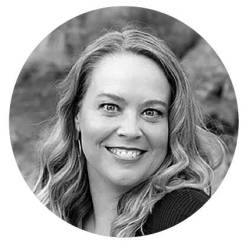
What she does now: Jones runs the Nevada and Arizona operations for Hilltop Public Solutions, a strategy and consulting company.
What she learned: “The No. 1 lesson from him to me was “trust your gut, Megan,” she said. Reid taught her, even as an intern, to have confidence in her instincts, although she wasn’t confident in them herself when she began. “There was never a meeting in which he didn’t ask me my opinion, what was my plan for things,” she recalled.
And another thing: She once told Reid loyalty to the boss was a critical quality for working in politics, but says Reid corrected her, stating staffers would only be loyal to the boss if they believed the boss was in turn loyal to them.
Asha Jones
Tenure with Reid: She started as a campaign intern in 1998, and later served in Reid’s Nevada office as a district representative, case manager and deputy director from 2013-2016. She’s also worked for the 2016 Hillary Clinton for president campaign, Rep. Shelley Berkley, the state of Nevada, Clark County, and former Rep. Ruben Kihuen. 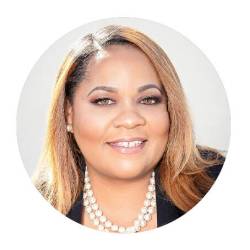
What she does now: Chief of staff to Rep. Steven Horsford
What she learned: Be committed to your state. Reid worked across the aisle to do things that would benefit Nevada, doing whatever was necessary to make sure the state came out ahead. And he kept his eyes on that prize, she said. “He didn’t let things rattle him or shake him.” She also learned there are no permanent friends or enemies; you might be at odds with somebody today, but next year, you’ll find yourself working alongside them, so never burn those bridges.
And another thing: Stoke the passion. Reid would request weekly reports from staff, and would actually read them, which made his employees feel their daily work was valued. It’s a lesson she takes to heart as a leader today.
Rebecca Lambe
Tenure with Reid: Lambe started working for Reid’s political operation in 2003, preparing for his 2004 re-election. She helped Reid rebuild the Nevada Democratic Party and its coordinated campaign, designed to help Democrats up and down the ballot. The result was the so-called Reid machine,` which won Reid new terms in 2004 and 2010, and delivered the state for Barack Obama in 2008 and 2012, Hillary Clinton in 2016, Gov. Steve Sisolak in 2018 and Joe Biden in 2020. 
What she does now: Lambe advises several Democratic campaigns and Nevada Democratic Victory, the political organization that formed after a cadre of progressives took over the state party apparatus in 2020.
What she learned: Infrastructure counts. When Lambe arrived, the party had no voter file and little permanent staff. At Reid’s direction, she transformed it with new hires, new technology and by taking advantage of every organizing opportunity, including the record-setting caucus of 2008. “All of that was his design,” she said. “He recognized the potential of what this state could be in terms of registration.”
And another thing: Being loyal is the key to success. “That has helped us recruit really good people,” she said. “There’s a mission and they’re given the tools to accomplish the mission.” Not only that, but loyalty means fighting to the end, battling for “every blade of grass,” as she put it. “He never faltered. He was always in the fight.”
Jim Manley
Tenure with Reid: Manley was a senior communications adviser and spokesman for Reid from 2004 to 2010. 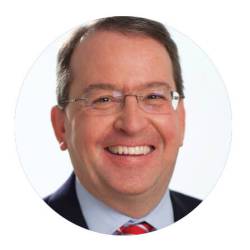
What he does now: Public affairs consulting.
What he learned: Leaders have to approach their jobs with a very different calculus than regular members, who only have to look out for their own interests. As a leader, he said, Reid had to balance the concerns of all the members of his caucus during legislative battles. He learned not to take a person or institution’s initial public position at face value, and look beyond the rhetoric to find a deal. “I can go into any situation knowing I’ve had a master class in crisis communications,” Manley said. “Nothing can rattle me after six years of working for Sen. Reid.”
And another thing: Never second-guess yourself. Reid taught him to take a stance and stick with it.
Tessa Hafen
Tenure with Reid: Hafen started as an intern in 1998. She later worked as a press assistant, deputy press secretary and finally as press secretary. She left in 2006, after Reid persuaded her to run for Congress against then-Republican incumbent Rep. Jon Porter. 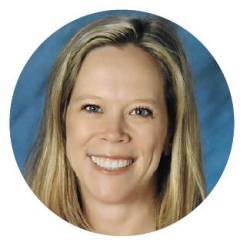
What she does now: After working for the health sciences system within the Nevada System of Higher Education and lobbying at the 2007 Legislature, she does substitute teaching in Salt Lake City.
What she learned: Make every moment count. Reid, she said, was incredibly disciplined, in his exercise routines, his diet, and his work habits. “He never wasted time,” she recalls. “He never wavered from that.” His discipline paid off during long legislative battles, including the time in 2003 when Reid engaged in a talking filibuster for more than eight hours on the Senate floor during which he read from his book, “Searchlight: The Camp That Didn’t Fail.”
And another thing: Trust your instincts for talent. She said when Reid broached the subject of running for Congress, it was something she’d thought about, but never shared with the senator. “He just really saw potential in people,” she said. And Reid was right: Hafen came within 2 percentage points of defeating Porter, the closest of any Democratic challenger until he was defeated by Rep. Dina Titus in 2008.
David Cherry
Tenure with Reid: He began in 1997 as a deputy press secretary. He eventually became press secretary for Reid on the Environment and Public Works Committee, and later worked for Rep. Shelley Berkley. 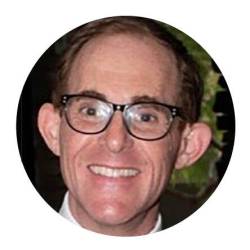
What he does now: Government affairs manager for the city of Henderson.
What he learned: Cherry learned to love Nevada in new ways, as Reid insisted his staff accompany him on trips around the Silver State. Cherry said he saw Reid up close in Washington, D.C., and all over the state, and that he was the same person in both locales. “The first thing I learned from him was to respect the Senate and to treat public service as an honor, a privilege and a duty,” Cherry said. Although Reid never performed well at the ballot boxes of rural Nevada, he kept showing up there, because it was important to him to meet his constituents and because he had a soft spot for rural places, like his hometown of Searchlight.
And another thing: Seek out talented people and surround yourself with them. “He was like a great talent scout,” Cherry said. He recognized that he’d been given opportunities, most particularly by his mentor, former Democratic Gov. Mike O’Callaghan. “I think he paid it forward many times,” Cherry said.
Susan McCue
Tenure with Reid: McCue started in 1990 as a deputy press secretary, later working as press secretary, speechwriter and finally chief of staff in 1999. She left the office in 2007. 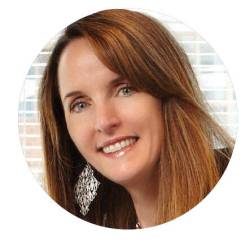
What she does now: After working for the ONE Campaign started by U2’s Bono, and co-founding the Senate Majority PAC in 2011, McCue founded her own firm, Message Global.
What she learned: McCue can rattle off a list, from patience and humility to tenacity and the need to have a thick skin. “I suppose the biggest lesson was to be who you are. You can’t be anybody else,” she says. “He was always calm, confident and comfortable in his own skin, and that made us all feel the same around him.” Unlike many politicians, Reid was not a big talker, which gave him the chance to read people and figure out what was happening behind the talk, “that uncanny sixth sense for knowing what was coming around the corner,” she said.
And another thing: Have no fear. “It was something to see,” McCue recalls. “He’d take on anyone, especially bullies. He balanced it with equal compassion for those he cared about.”
Kai Anderson
Tenure with Reid: Anderson started in 1999 as a legislative analyst, focusing on energy and environmental issues, and worked his way up to deputy chief of staff. He left the office in 2005. 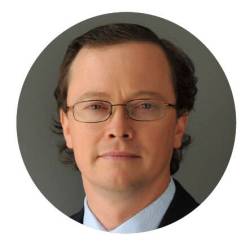
What he does now: He’s the CEO of Cassidy and Associates, a lobbying firm specializing in natural resources and conservation.
What he learned: Do the right thing. Reid was an early advocate for renewable energy, and tax credits for companies that made products to generate it. “It wasn’t politically calculated,” Anderson said. “He decided what the right direction was, and he went, politics be damned.” Reid taught by example, showing his staff how to work the legislative process, not just telling them about it. “He would be going somewhere, and you would keep up.”
And another thing: Reid endeavored to understand the members of his caucus, to know what they needed, what they could vote for and what they could never swallow, Anderson said. “He (Reid) made it his business to know their business,” he said. That’s the same approach Anderson uses in his work as a lobbyist.
Nancy Worlie
Tenure with Reid: Worlie left a producing job in TV news in Reno to join Reid’s staff in 1997, helping the senator improve his TV presence. Among her projects: the first Lake Tahoe summit, which featured then President Bill Clinton and Vice President Al Gore. (The summit has since become a tradition for Nevada senators.) 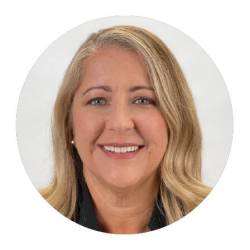
What she does now: Worlie is the interim general manager of KPBS, San Diego’s public television affiliate.
What she learned: Power isn’t always where you think. Reid did most of his work behind the scenes, out of view of the cameras. “He always knew he was better off behind the scenes,” she said. “You don’t have to be the loudest voice; you don’t have to have the biggest personality.” Indeed, Reid worked quietly, as in 2001, when he wooed then-Republican Sen. Jim Jeffords, persuading him to become an independent and throw control of the Senate to the Democrats.
And another thing: Be nice to staff. Worlie’s work taught her that nothing — from the Tahoe summit to regular legislation — takes place without the work not just of senators, but of their staffs. Now, on trips to Washington, D.C., to discuss public broadcasting, she always makes it a point to greet staffers, knowing they are the ones who keep things running.



